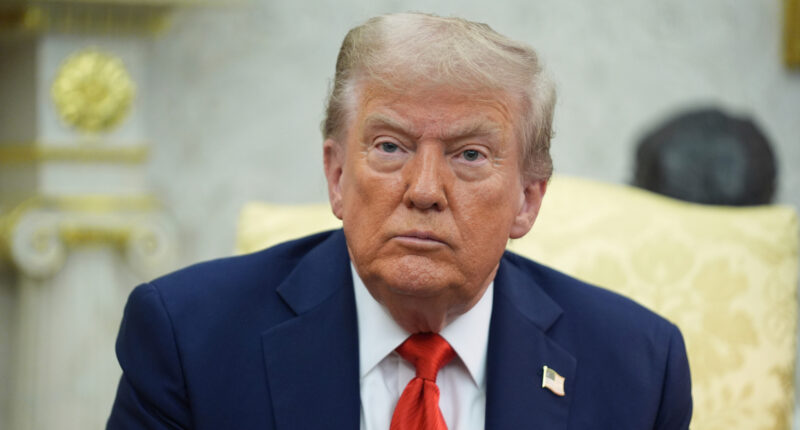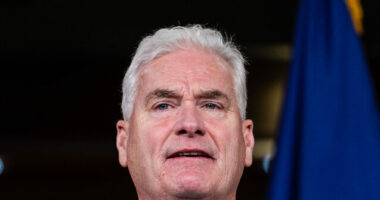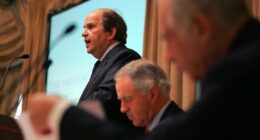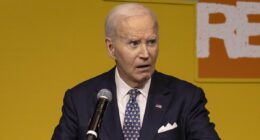Share this @internewscast.com
The Trump administration advanced its tariff battle to the Supreme Court on Wednesday, seeking a swift decision allowing the president to enact extensive import duties under federal law.
The government urged the court to overturn a ruling from an appeals court that had declared most of President Donald Trump’s tariffs as an excessive application of an emergency powers law.
This marks the latest attempt by the Trump administration to seek intervention from a Supreme Court influenced by Trump’s appointments, potentially putting a significant aspect of his trade policy under judicial review.
The U.S. Court of Appeals for the Federal Circuit maintained the tariffs temporarily, yet the administration pressed the high court for prompt action in a petition filed electronically late Wednesday, also shared with The Associated Press, with formal docketing anticipated on Thursday.
Solicitor General D. John Sauer asked the justices to take up the case and hear arguments in early November.
“This decision introduces uncertainty into ongoing foreign negotiations conducted through tariffs over the past five months, threatening both completed framework deals and current negotiations,” he stated. “This case carries considerable significance.”
However, the scenario is equally crucial for small businesses suffering from tariffs and instability, noted Jeffrey Schwab, senior counsel and director of litigation at the Liberty Justice Center.
“These unlawful tariffs are inflicting serious harm on small businesses and jeopardizing their survival. We hope for a prompt resolution of this case for our clients,” he said.
The businesses have twice prevailed, once at a federal court focused on trade and again with the appeals court’s 7-4 ruling.
Their lawsuit is one of several challenging the tariffs and erratic rollout that have shaken global markets, alienated U.S. trading partners and allies and raised fears of higher prices and slower economic growth.
But Trump has also used the levies to pressure the European Union, Japan and other countries into accepting new trade deals. Revenue from tariffs totaled $159 billion by late August, more than double what it was at the same point the year before.
Most judges on the U.S. Court of Appeals for the Federal Circuit found the 1977 International Emergency Economic Powers Act, or IEEPA, did not let Trump usurp congressional power to set tariffs. The dissenters, though, said the law does allow the president to regulate importation during emergencies without explicit limitations.
The ruling involves two sets of import taxes, both of which Trump justified by declaring a national emergency: the tariffs first announced in April and the ones from February on imports from Canada, China and Mexico.
The Constitution gives Congress the power to impose taxes, including tariffs. But over the decades, lawmakers have ceded authority to the president, and Trump has made the most of the power vacuum.
Some Trump tariffs, including levies on foreign steel, aluminum and autos, weren’t covered by the appeals court ruling. It also does not include tariffs Trump imposed on China in his first term that were kept by Democratic President Joe Biden.
Trump can impose tariffs under other laws, but those have more limitations on the speed and severity with which he could act.
The government has argued that if the tariffs are struck down, it might have to refund some of the import taxes that it’s collected, delivering a financial blow to the U.S. Treasury.
Copyright © 2025 by The Associated Press. All Rights Reserved.
















